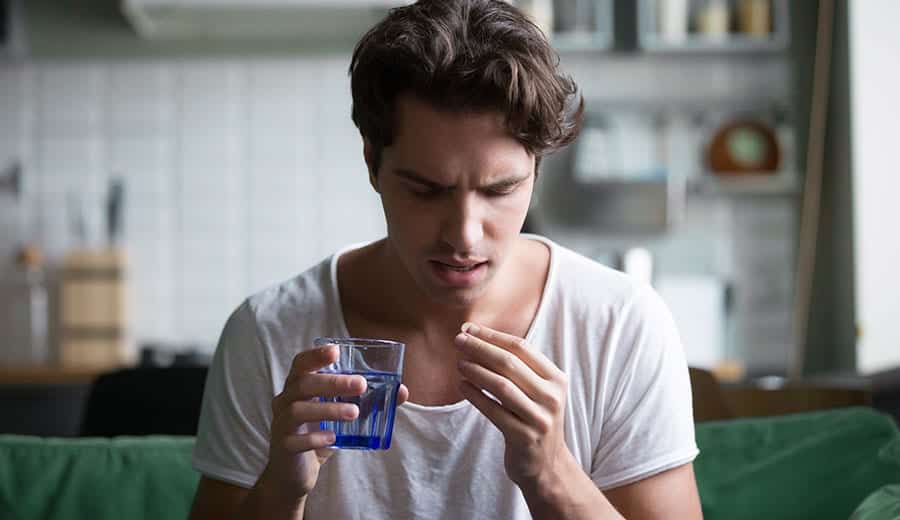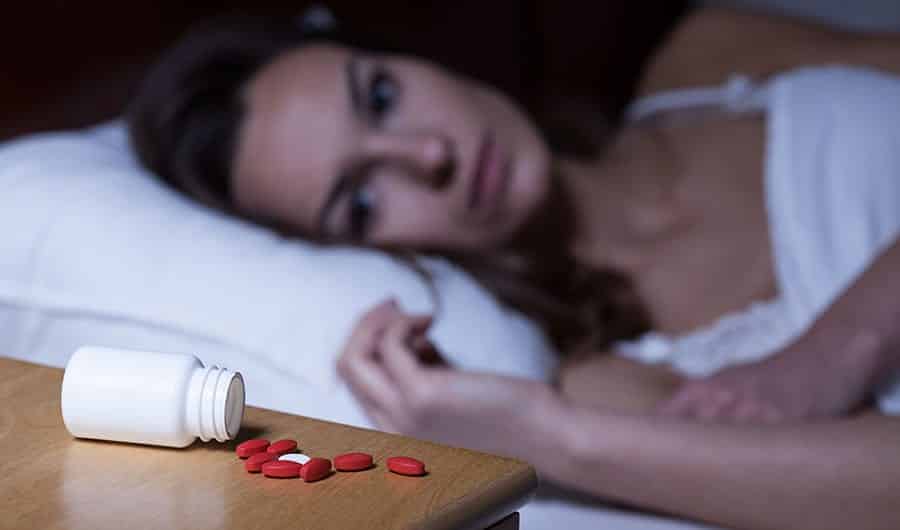TABLE OF CONTENTS
1. Introduction
2. What Self-Medication Means
3. Common Reasons for Self-Medicating
4. Am I Self-Medicating?
5. Treating Mental Illness and Substance Abuse
One crucial part of substance use treatment at Hotel California by the Sea (HCBTS) is getting to the bottom of why a client abuses drugs and alcohol in the first place. For some people, this reason may be self-medication.
Self-medication may result from underlying physical or mental health issues. Medical research experts have conducted a lot of investigations concerning self-medicating and its correlation to substance use disorders.

Chances are, as maintained by the National Institute of Health, National Institute on Drug Abuse, one in two people diagnosed with a mental health issue have also experienced the use of self-medication and substance abuse at some point.
Experts call this co-existence of multiple mental illnesses “comorbidity”, or co-occurring mental health disorders. A comorbid mental illness refers to when someone suffers from two different mental health issues at the same time. In the case of a co-occurring disorder in substance abuse treatment, a SUD and another mental or physical health condition would count as comorbid.
Understanding whether addiction or the co-occurring illness came first can be a tricky mystery to solve, but either way, it is important to try and determine whether you are self-medicating.
What Self-Medication Means
The term self-medicating can apply to many different situations. In terms of its relationship to substance abuse, it refers to treating a condition (or its symptoms) without the consultation or oversight from a medical professional.
Instead of seeking professional treatment for an addiction or mental illness, a person will try to treat themselves to see what will make them feel better. Self-medication can be considered one of many coping mechanisms people develop or experiment with when dealing with physical or mental health issues. Stay aware, however, that this method of treatment will not work in the long term.
Self-medicating may result from not seeking to obtain a professional diagnosis (or not knowing a diagnosis exists) for mental health symptoms. Instead, a person in this position may attempt to alleviate symptoms with prescription drugs, illegal or “street” drugs, alcohol, or even over-the-counter remedies. And reaching for a drink or a drug may feel good in the moment, but there are too many negative side effects to this temporary solution.
This is where Hotel California by the Sea can help. But first, maybe you want to see if you fit some of the general indicators of a self-medicator. Read on to find out more.

Common Reasons for Self-Medicating
Sometimes it can be difficult to sort from the past where things started to go wrong and how we ended up where we are. This is often true with substance use disorders and physical or mental health issues.
Why have things spun so out of control?
Where did it first get “bad”?
Why can’t I stop?
When asking ourselves these questions, or asking these questions with a medical provider, it might help to understand some of the reasons why we self-medicated in the first place. Chances are the substance abuse tied into events that occurred from physical or mental health issues, or traumatic events. Here are a few examples below.
Mental Illnesses
Some people may suffer from Generalized Anxiety Disorder (GAD), Panic Disorder, or Post-Traumatic Stress Disorder (PTSD). Symptoms such as anxiety, flashbacks, and mood swings frequently accompany PTSD.
For instance, think about a soldier returning home from war who starts experiencing symptoms of post traumatic stress disorder. She begins witnessing herself suffer from mental health symptoms that scare her, and can’t seem to stop seeing flashes of past events that traumatized her.
In this case, it would probably be best for her to seek mental health treatment. But instead, she wants to try to figure this out on her own. Her form of self-medicating includes turning to anti-anxiety medications, such as benzodiazepines. These medications seem to calm her down, help her feel better about herself, and may take away some of the depression and anxiety she experiences.
But in the end, misusing these medications will only make things worse. The next day, her anxiety alwaysreturns. The traumatic events from her time in the military come back and her reaction to them seems even more extreme, now. She has no impulse control. The cycle repeats. The nightmare continues. Another form of self-medication leads to a full-blown substance use disorder.
Sleep Disorders
Another scenario of self-medication may have begun with sleeping troubles. Sleep issues are often associated with underlying mental issues or physical problems, such as PTSD, anxiety disorders, mood disorders, or chronic pain.
It would be only human to start trying to treat symptoms temporarily with an over-the-counter remedy, such as a depressant, like alcohol, that is easily available.

Depressants help you sleep. But when your body gets used to a depressant, it eventually requires more of the substance to feel the same amount of sleepiness. Alcohol will also help dull the senses and lull a person into covering up other symptoms of their insomnia.
For a while, these symptoms might disappear while the person is under the influence. However, this only lasts a limited amount of time, and when sober, these symptoms return. And now, they could be even worse than before this person began drinking to help them sleep.
Pain
Another reason someone may fall into the self-medicating conundrum is physical pain or chronic pain. Think about a construction worker who has been recently hit by a heavy piece of building material at work. He suffers from excruciating back pain every day. This person may need to try and drag themselves to work to support him, but if it were up to him, he wouldn’t even get out of bed. Over-the-counter pain medications do absolutely nothing. He seeks help from his doctor, who agrees something stronger is needed.
Out comes the prescription pad and, in the blink of an eye, a month’s supply of painkillers are prescribed to the worker. That time comes to an end, though. The doctor claims that the construction worker no longer needs painkillers and that she can’t ethically prescribe him any for much longer.
But the human body gets used to a certain dosage of pain medication and its euphoric side effects. Maybe he can’t figure out how to wean off without failing. Now he can no longer get a legal prescription to help him out, nor figure out how else to help his pain that works as effectively as opioids, so he then finds a way to obtain illegal versions to alleviate his pain.
Hence, a substance use disorder is born from the need to self-medicate. Instead of trying to seek treatment for fixing the problem, our society has created another person who is trying to seek relief from pain through self-medication and ends up feeling like clothes stuck on the spin cycle.
Learn about our multiple levels of care available to clients.TREATMENT PROGRAMS
Am I Self-Medicating?
Answer the following questions as honestly as possible. Remember: there is no wrong or right answer. There is only the truth!
- Are you anxious, irritable, or confused?
- Do you have sudden bursts of anger?
- Are you irritable and quick to jump at people?
- Are you avoiding friends, relatives, relationships, or activities you previously enjoyed?
- Do you feel empty inside, hopeless, guilty, worthless, or just sad?
- Are you in pain? Have you recently had surgery?
- Any thoughts of suicide or any attempts of suicide?
- Do you have a new lack of interest in hobbies, your hygiene, or in eating?
- Are you suffering financially from the use of alcohol, cigarettes, marijuana, cocaine, or any other illegal drugs?
- Are you hiding your use of these drugs from someone else in your life?
- Do you find that a substance helps relieve any of the issues mentioned above?
- Are you finding yourself thinking all the time about consuming alcohol, illegal drugs, cigarettes, prescription drugs to help you forget about any of the issues mentioned above in numbers 1 through 9?
If you answered “yes” to numbers 10, 11, or 12, make sure to take your answers to a medical professional and let them know how you’re suffering. In turn, this medical professional may be able to help you determine what type of help you need.
If you are self-medicating and it has led you to develop a substance use disorder, it is likely that you have an underlying condition that needs to be properly diagnosed. Then, a treatment plan can be created between you and your medical professional. Hotel California by the Sea helps clients through this process, treating both disorders and the whole person.
Treating Mental Illness and Substance Use Disorder
Common threads that often tie self-medicating and substance use disorder together seem to be symptoms of stress, anxiety, pain, and other mental health issues, coupled with not seeking professional medical treatment.
Results from a study conducted by the National Center for Biotechnology Information, US National Library of Medicine, led the authors to conclude that, “Even when excluding the subgroup with substance dependence, those with mental health problems were more likely than the general population to use illicit drugs and rates of use increased with the severity of mental health problems.”
So if you are self-medicating and you are suffering from anxiety, depression, stress, trouble sleeping, or are confused or in a lot of pain, seek proper medical treatment to overcome your mental illness before turning to a drink or drug.
